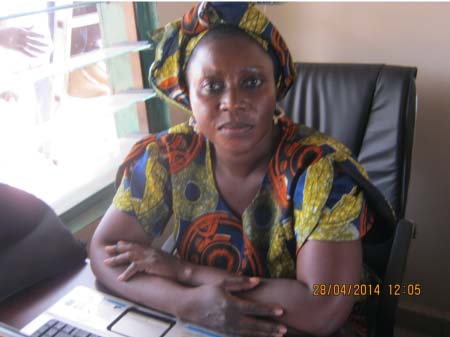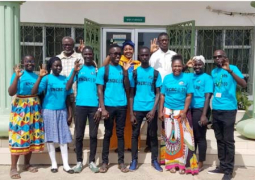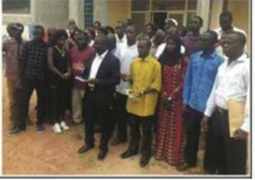
Thirty-five farmers drawn from Saba Sajally District in the North Bank Region and Nianija District in the Central River Region North Tuesday conveyed a daylong meeting on the closure of the AUSAID project in The Gambia.
The meeting, organised by the management of AUSAID under the National Agricultural Research Institution (NARI), was held at the Chamen Training and Seed Multiplication Centre in North Bank Region.
Giving an overview of the project activities, the national coordinator, Madam Mama Saho, said the Sustainable Intensification of Integrated Crop-small ruminant production system in West Africa SIIC-SR, is a regional grant project funded by the government of Australia to the Government of The Gambia.
Madam Saho said the project started operation since 2011, within the North Bank and the Central River Region North, adding that AUSAID was a pilot project targeted two villages in Saba Sajally District in NBR and Nianija District CRR North and it was expected to wrap up in 2014.
According to her, the project would be wrapping up this year and it was important the project management briefed farmers on the current status of the project over the three-year implementation of the activities of the project.
She said that based on this, AUSAID management under the coordination of the country coordinator, Madam Mama Saho, deemed it fitting to organize a daylong meeting with farmers, extension workers, project beneficiaries, innovation platform producers to discuss and share their experience on lesson learnt during the three years of the implementation of AUSAID project, its success, achievements, and shortfalls, and make recommendations on the way forward for the sustainability of the project in the two districts.
Dr Saikou Sanyang, Regional Agricultural Director, NBR, emphasised the importance of agriculture, saying it included food self-sufficiency, alleviating poverty, improving the farmers’ income and household food security.
He spoke at length about the importance of the AUSAID project by providing farmers with groundnut seeds, cowpea, hay, and fertilizing their farms with the decrease in number of small ruminants and increase in their income.
According to Dr Sanyang, at the end of the project, it was necessary to evaluate the achievements and shortfalls of the project, as well as to disseminate the relevant information to their fellow farmers, noting that agriculture is the backbone of any meaningful development.
He further stressed the need to intervene on agriculture as people earn their living, reduce poverty in rural communities and also increase the income and economic generation of the government.
Dr Sanyang noted further that the economy that comes from agriculture is used for the development of other programmes and related sectors.
He therefore commended the management of AUSAID Project for their timely intervention in addressing food security in the country.
“The government is also doing everything possible to ensure that there is food self-sufficiency in the country,” Dr Sanyang said.
He therefore challenged farmers to be more productive in agriculture as it had gone beyond subsistence farming to commercialization.
Read Other Articles In Article (Archive)
Willful Damage To Property Lands Man In Court
Nov 9, 2009, 12:18 PM



